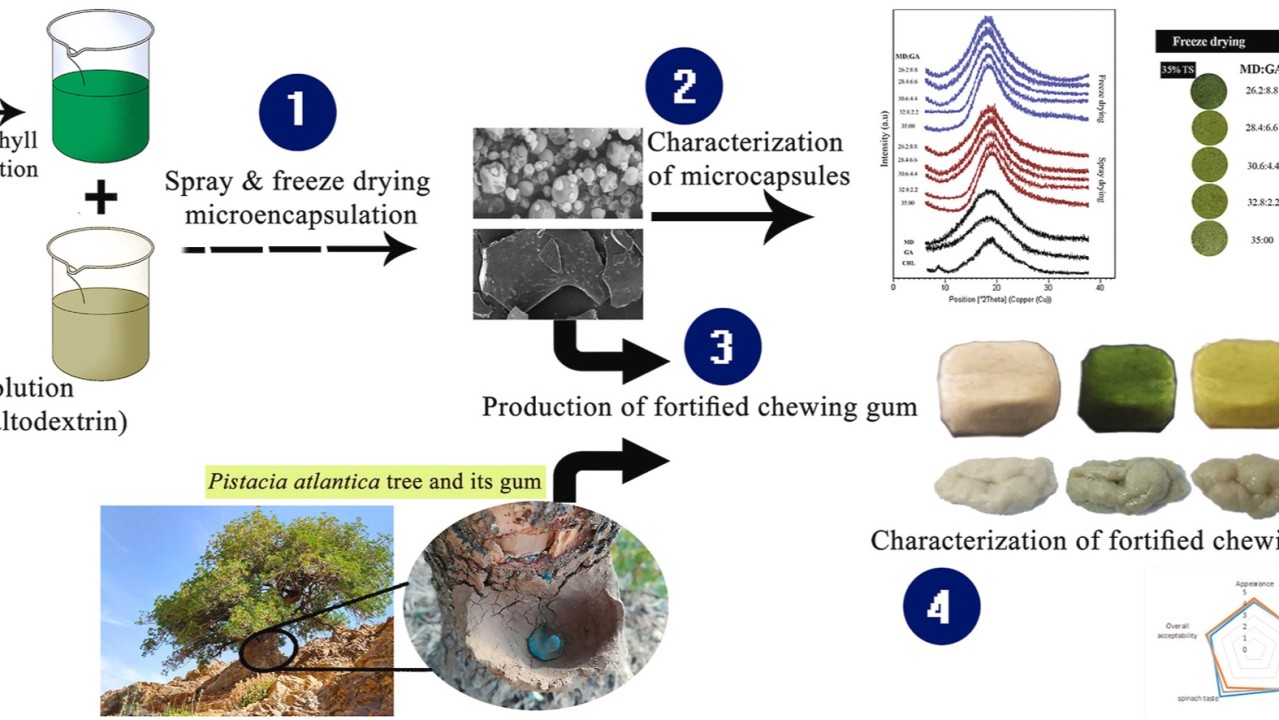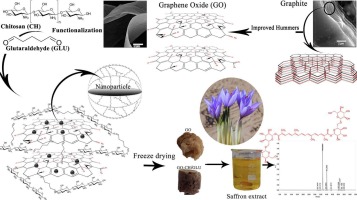Encapsulation of Melissa officinalis in Chocolates and Chewing Gums
Introduction
Modern urban lifestyles often involve fast-paced, stressful routines that negatively impact both mental and physical well-being. Living in big cities, with demanding work schedules, long commutes, and constant stimuli, often increases stress and anxiety levels. Inadequate sleep and relaxation worsen the situation, leading to chronic fatigue and emotional exhaustion. To address these challenges, many individuals turn to natural methods for managing stress and improving sleep quality. Botanical extracts like Melissa officinalis, commonly known as lemon balm, have attracted attention for their therapeutic effects. People can conveniently incorporate encapsulated Melissa officinalis extract into food products like chocolates and chewing gums, making it an enjoyable way to support mental health and well-being.Bioactive Compounds of Melissa officinalis
Melissa officinalis contains a wealth of bioactive compounds that provide its therapeutic benefits. Key components include rosmarinic acid, flavonoids, phenolic acids, and essential oils such as citronellal, citral, and geraniol. These compounds possess antioxidant, anti-inflammatory, and calming properties, which make the herb a popular remedy for stress and anxiety relief. Rosmarinic acid, in particular, modulates the activity of GABA (gamma-aminobutyric acid), a neurotransmitter that promotes relaxation and helps reduce anxiety. Furthermore, the volatile oils in Melissa officinalis produce mild sedative effects, making it an excellent supplement for addressing sleep disturbances.Therapeutic and Nutraceutical Profiles
Research has extensively documented the therapeutic benefits of Melissa officinalis. Known for its anxiolytic (anti-anxiety), sedative, and cognitive-enhancing properties, the herb proves valuable for individuals in urban environments where stress is pervasive. Consuming Melissa officinalis improves mood, alleviates mild to moderate anxiety, and promotes relaxation, which supports restful sleep. Additionally, its potent antioxidant properties help protect the body from oxidative stress caused by environmental pollutants and mental fatigue. As a natural and safe nutraceutical, Melissa officinalis is a desirable ingredient in functional foods.Methods of Encapsulation
Encapsulation is a technique used to enhance the stability, bioavailability, and controlled release of bioactive compounds in functional foods. For Melissa officinalis, encapsulation involves entrapping the bioactive compounds within a carrier material, creating a protective barrier that shields the sensitive components from environmental factors such as light, heat, and oxygen. Nano-encapsulation, which involves the creation of nano-sized capsules, offers even greater benefits by allowing the active ingredients to be released in a controlled manner, thereby maximizing their efficacy.Methods such as spray drying, freeze-drying, and coacervation are commonly used to encapsulate Melissa officinalis. Nano-encapsulation methods include nanoprecipitation and lipid-based nanocarriers, which offer better protection and improved bioavailability. These techniques ensure that the herb’s therapeutic compounds remain active for longer periods and are more efficiently absorbed by the body.
Recent studies have shown the versatility and effectiveness of encapsulation technologies in preserving bioactive compounds. For instance, a study on Crocus sativus L., Rosa damascena, Melissa officinalis, and Echium amoenum incorporated double-encapsulated extracts in a dark chocolate matrix, demonstrating not only the feasibility of encapsulating these botanical compounds but also their ability to enhance the functional properties of the chocolate. This approach offers a novel delivery system for nutraceuticals, where the encapsulation method helps to protect the bioactive compounds while maintaining the product’s sensory appeal (Rajabi, et al., 2024).
Similarly, a study on microencapsulation of spinach extract used both spray-drying and freeze-drying techniques to preserve chlorophyll, illustrating how encapsulation methods can be applied to a range of plant-based ingredients for use in functional foods. This research highlights the potential of microencapsulated ingredients in products like chewing gum, where controlled release is key to maintaining the bioactivity of the compounds (Rajabi, et al., 2024). Such findings underline the potential of encapsulated Melissa officinalis to enhance the effectiveness of food products designed for mental wellness.Applications of Encapsulated Melissa officinalis
The encapsulated or nano-encapsulated form of Melissa officinalis opens up various possibilities for incorporation into everyday food products, providing a convenient way for consumers to benefit from its stress-relieving properties. Two prominent applications are chocolates and chewing gums.-
- Chewing Gums: Chewing gum is another popular medium for delivering nutraceuticals. The act of chewing itself has been shown to reduce stress, and when combined with nano-encapsulated Melissa officinalis, the product can serve as an effective tool for promoting calmness. Gum provides sustained release of the herbal compounds over time, allowing for prolonged effects throughout the day. Its convenient and portable form allows city dwellers to access the stress-relieving benefits of Melissa officinalis anytime. Studies on encapsulated plant extracts show that microencapsulation methods, such as spray-drying and freeze-drying, enhance the stability and controlled release of active ingredients in gum (Kaya et al., 2023).
-
- Chocolates: Chocolate is a widely consumed treat that can be enhanced with encapsulated Melissa officinalis to offer not only indulgence but also relaxation. The herb’s calming effects can complement the mood-lifting properties of chocolate, making it an ideal option for individuals seeking relief from stress and anxiety. Nano-encapsulation ensures that the flavor of Melissa officinalis remains subtle while still delivering its health benefits. Studies have shown that dark chocolate, when combined with herbal extracts like Melissa officinalis, can serve as both a therapeutic and enjoyable food product, enhancing the consumer’s experience (Sadrzadeh, et al., 2023).
Conclusion
Encapsulated and nano-encapsulated Melissa officinalis offers an innovative way to manage stress and anxiety in modern urban life. Adding this natural remedy to foods like chocolates and chewing gums makes it easy to incorporate into daily routines. Consumers can easily improve mental well-being, reduce stress, and enhance sleep quality with Melissa officinalis. Its established therapeutic profile makes it a valuable solution for the challenges of city living. Ongoing research into encapsulating plant extracts in functional food matrices shows promise. This growing trend highlights the potential for developing functional foods to support wellness in urban populations.
References
-
- Rajabi, H., & Sedaghati, S. (2024). Nutraceutical dark chocolate: A delivery system for double-encapsulated extracts of Crocus sativus L., Rosa damascena, Melissa officinalis L., and Echium amoenum. LWT, 198, 116036.
-
- Rajabi, H., Sedaghati, S., Rajabzadeh, G., & Sani, A. M. (2024). Characterization of microencapsulated spinach extract obtained by spray-drying and freeze-drying techniques and its use as a source of chlorophyll in chewing gum based on Pistacia atlantica. Food Hydrocolloids, 150, 109665.




